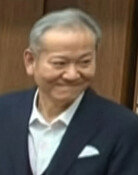[Opinion] Why Do They Fast?
In the Bible, there is a verse like the following ~ ``When you fast, do not let it show on your face. Wash your face and put oil on your head so that others may not see that you are fasting.`` This kind of fasting, however, appears somewhat distant from our present reality, belonging to a time that was more peaceful and pleasant. In our society the few occasions on which we do fast, we do so not to repent or to share other people’s suffering, but for health and beauty reasons. Fasts undertaken as protest against anti-democratic measures by a dictatorial state or expedient demonstration of government power fall under a different category. Such fasting is a method of struggle. Its goal is the anticipated peace that follows the restoration of legitimate authority.
During last year’s bitter winter, human rights activists held a fast at Seoul Myong-dong Cathedral to demand legislative reform. This summer, one person is carrying on a fast to demand basic labor rights. Lawyer Kim Chil Jun, who has provided legal assistance to Ramicon moving laborers over the past year to organize a labor union, sat in front of the National Assembly building and fasted for 16 days as a sign of desperation.
Since last week, people who agree with his viewpoint have carried on a relay one-person fast. Of course, these are joined by the head of the Construction Corporation Union and 50 unionized laborers from the Construction Moving Labor Union. People who have no interest in such struggles and seek only comfort and peace will not understand such situations. Moreover, news reports only show pictures of policemen swinging a hammer to forcefully disperse a laborer blocking a vehicle but do not tell the full story behind the scene.
Last September, Ramicon workers established the basis for a National Construction Moving Labor Union through 40 main offices and 70 branch offices. But the company officials rejected it. Company associations Korea Ramicon Joint Enterprise Association and Korea Ramicon Cooperative Joint Association Committee refused three requests for a joint negotiation meeting. The stated reason for refusal was that Ramicon drivers who are bound by individual contracts are not allowed to form unions.
However, The Department of Labor ruled, following questioning from the Construction Moving Labor Union, that after the company-subordinate relations have been established, the laborer falls under labor-relations law. The Seoul Regional Labor Committee also announced the same opinion, ruling that layoffs due to union activity are illegitimate and that the company must reinstate laid-off workers.
Despite such rulings, the company officials refused to concede and applied for a provisional injunction against union activity last April. The Inchon Regional Court turned down the request and confirmed the legality of union activity.
This level of good judgment leaves no room for criticism in a democratic country. The company-labor dispute over the question of whether Ramicon truck drivers can unionize was finally resolved through the legal process. The Labor Committee, Department of Labor, and the courts of law all made concurring decisions on the issue. Yet the end result turned out to be surprisingly different. 500 workers were fired, 70 were sued, and 50 got their property provisionally seized. They won the struggle for the security of their families and livelihood, but in the end, they only got hurt. Company officials remain obstinate and still see interference with union activity as their right.
The workers and lawyer sued the company officials for unjust abuse of labor. The cases number well over 100. In one case, an opinion demanded that even the worker be punished. Yet, investigators are looking more and more like the company officials and refrain from using their significant powers of investigation. They give the weak excuse that the upper echelons have not given definite orders regarding the provisional anti-unionizing case.
It is under these circumstances that I direct my question to the people who do not understand the meaning behind fasting. What is it that they can do and what is it that we can do? Even when all the means allowed within the system have been exhausted, the workers’ rights still were not realized. Government authorities who destroyed those Ramicon trucks actively disregarded the court’s decision.
Hence, they found and chose a final course of action outside the system. Peaceful fasting may be possible to do privately as a practice of virtue, but fasting as struggle is a form of social responsibility and, therefore, must be done in the public eye.
Cha Byong Jik (Professor, Ehwa Women’s University)







